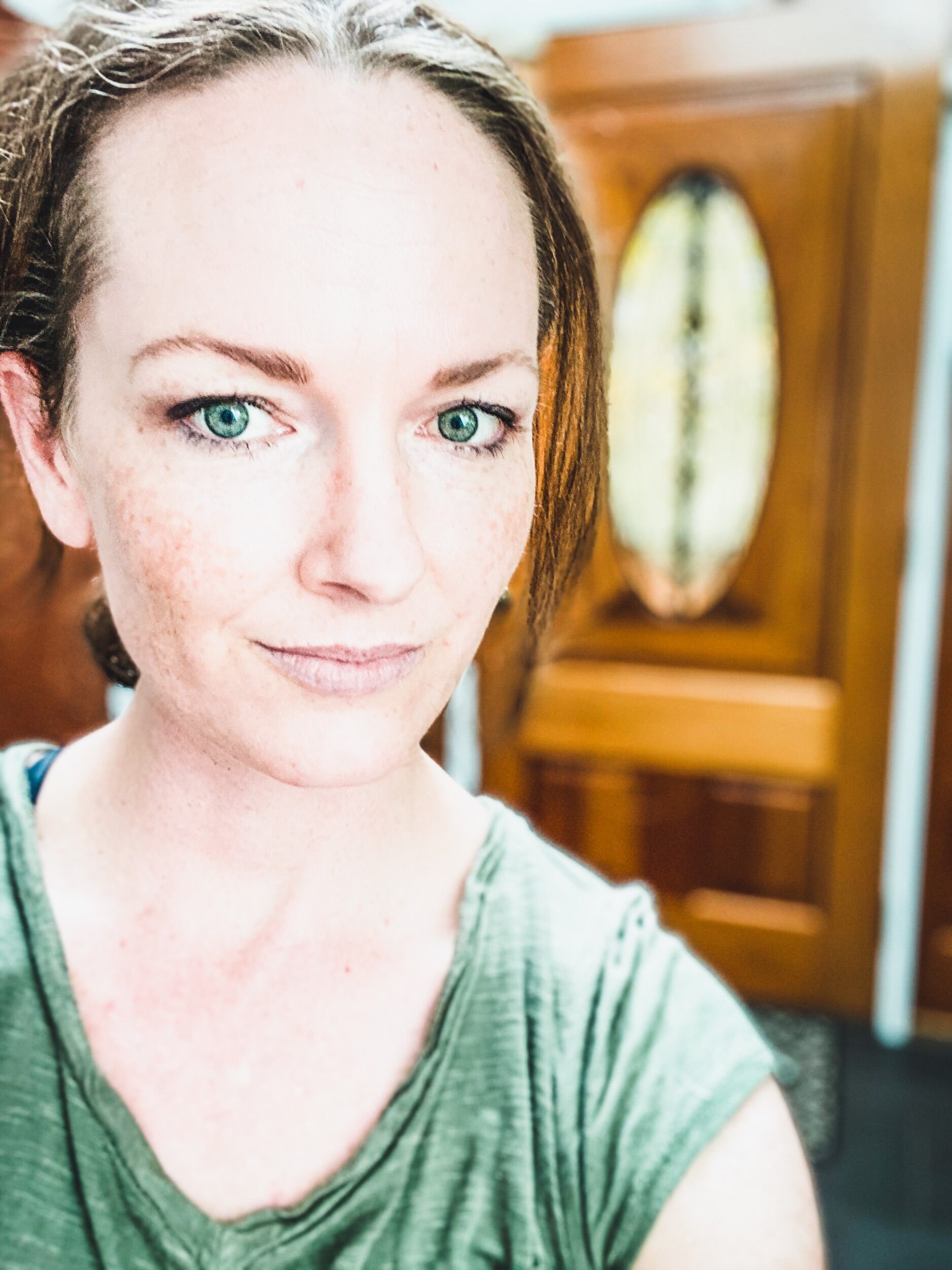Emotional Burnout: Protecting Your Mental Health as an Introvert and Mother
I’m just gonna say it: Recently, I’ve wondered if having a third child was a mistake.
It has nothing to do with the actual child: our youngest is as sweet and easy as you could hope for, full of toothless grins, adorable squeals, and delighted giggles.
Rather, my doubt has to do with feeling completely overwhelmed and burnt out by the constant stream of needs and emotions that demand my attention. Constant. Even when I’m at work or they’ve all gone to bed, their hypothetical future needs and past emotions are at the forefront of my psyche, buzzing like static, fraying my attention and swamping my heart.
There’s a saying that your home is only as happy as your least happy child, and with three kids five and under, those moments of peace are rare indeed. And they’re so very fragile, possible only, it feels, if every detail has been planned for and every need anticipated, and even then, unlikely.
Managing all three at once takes every bit of my mental and physical capacity, with a moment here and there if I’m lucky to drink a glass of water or use the bathroom alone (maybe). And then, when that’s done and the kids are asleep or at school and daycare, the other needs of my life come rushing in: my students, husband, laundry, dishes, dirty floors.
Notice anything missing?
There is nowhere left for MY feelings, MY needs, MY peace and contentment. Not to mention basics like taking a shower or getting some exercise.
As an introvert and an empath (INFJ), the constant stream of other people’s needs, feelings, and opinions is utterly overwhelming. The inner whisper that tells me about myself is quickly and completely drowned out, and eventually, it gives up, choosing to withdraw rather than fight for notice.
It’s as if that part of me decides that it’s better not to have needs at all than to be continually frustrated by them being unmet. Or that their needs become my needs: I think that I’ll be fulfilled if I can just help everyone else to be emotionally well.
And for a while, that’s true. I derive a lot of satisfaction from serving my loved ones, helping them to identify and process their feelings, filling up their little “love tanks” with affirmations, cuddles, tickles, and quality time.
But that can only last so long. Because I do have needs. My body needs rest and exercise and sunshine and healthy, delicious meals. My mind needs intellectual conversation, uninterrupted time to daydream, quiet stillness to reflect. And my heart needs to be on the receiving end of affection, to create and appreciate beauty, to sit with itself and process so that it can then heal.
When I haven’t been getting those things for a while, I get to a point where I can’t even figure out what to do with an hour to myself. I’m so out of touch with my own needs and emotions that my sense of self is gone. I usually notice this when I try to have a conversation with a friend and can’t think of anything to say, or when I finally dedicate some time to care for myself and can’t think of anything I want to do. These are the big red flags for me. The other is wishing my children would just go away for a week or two and being generally annoyed with them for not doing so.
Which feels terrible.
That is where I was before Thanksgiving, after two months of living in survival mode—dropping all the “optional” part of my life, which included exercise, writing, creativity of any kind, seeing friends, cooking meals (we lived off of tubs of basics like chicken thighs, broccoli, and rice that we could throw in the microwave for lunch and dinner), and doing the physical therapy I need to keep my chronic pain manageable.
I was not well. Thank God we had that whole week off and that our travel plans were cancelled, for it took me through Wednesday to start feeling like myself again.
I had to be very intentional about creating emotional space for myself. I dropped all expectations of productivity, doing only the bare minimum to keep the household running and allowing my husband to pick up some of the slack. I took a nap or at least lay in bed for an hour every afternoon.
On Sunday, I stayed home with our sleeping baby while my husband took the girls to a friend’s house for a small dinner party, even though I missed a chance to see dear friends. Saying no to that was not easy for me, but I had the wisdom to see that the stress of taking the baby and trying to get her to sleep at their house would have been a big drain on my fragile reserves and that I probably wouldn’t be able to enjoy the social time anyway because I was so depleted. The FOMO was real, but the flicker of excitement and contentment that I felt when they returned told me I had made the right choice.
On Wednesday, I took several hours to drive to a nearby town where I spent the day doing whatever the heck I wanted—no expectations, nobody else to consider. I walked around and did a little shopping, then got some lunch and wrote a few words while people-watching. It wasn’t anything crazy, but it was JUST ME. And my inner voice started to speak again.
Writing it down makes it sound pretty basic, but these small steps were nothing short of life-changing. I returned to work after that week off a new person, ready for demands of my life, freed from the cloud of depression and apathy that had engulfed me. It wasn’t until I recovered that I could see just how burnt out I had become.
It is SO VERY hard to make space for that alone time in the life of an engaged parent. Little people demand so very much of us. But if you’re like me, having some time to yourself is NOT OPTIONAL. I cannot be the mother I’m called to be without it. I cannot be the person I’m called to be without it.
Emotional burnout is a real thing, and it’s not something you can just ignore or overrule or fix with a quick prayer or attitude adjustment. For empaths, an essential step is to establish some physical distance between yourself and other people. Often, this requires leaving not only the room but also the house or even the town. An hour or two is probably the minimum, but a full day or even a weekend is ideal if you can swing it.
Sisters Emily and Amelia Nagoski just released a book on this topic called Burnout: The Secret to Unlocking the Stress Cycle. I heard about it on Brené Brown’s podcast (click here to listen or read the transcript) and felt like they had written it just for me. Toward the end of the podcast they identify seven strategies to help deal with emotional stress: physical activity, deep breathing and/or mindfulness, positive social interaction, laughter, physical affection, a “big old cry,” and creative expression. I would definitely add “time alone” to that list. The key, though, is to incorporate these things DAILY or at least weekly, rather than letting the stress build up until you’re barely functional (like I did).
Now, I’m trying to go for a short walk after I put the kids to bed each night (physical activity and alone time) and then to do something creative. I am the WORST at sticking to routines, but I’m trying, and I’ve asked my husband to help remind and encourage me. So far, it’s really made a big difference—I feel noticeably lighter when I return from that walk than I do before I go, and then I’m able to sit down and write, which feeds my sense of purpose.
A life well-lived is, I believe, always going to contain stress and probably lots of it. We simply cannot live lives of purpose and meaning and be free of stress. But what we can do is learn to manage that stress and to protect ourselves from burnout.
Having three children was not a mistake. The mistake was allowing them to overwhelm my emotional equilibrium and smother my sense of self. It is my hope that I’ll be able to show my girls how to care for themselves emotionally by modeling that care for myself.



